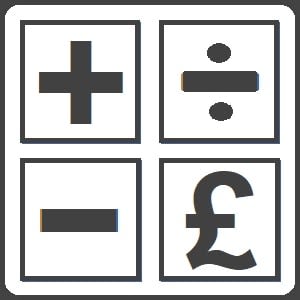Sole Trader, Partnership, Limited Company - How to Choose ?

Choose a Legal Structure for Your Business — Limited Company, Sole Trade, or Partnership ?
When starting a new business in the UK, one of the first key decisions is choosing the right legal structure. This choice affects not just your tax position but also your personal liability, reporting obligations, and how your business can grow.
Every structure has its own benefits and risks — and getting it right from the start can save a lot of future hassle. In this easy to read, easy to understand guidance, our expert at Elaga Accountancy will outline the common busine ss structures available in the UK and what you should think about when deciding.
Business Structures in the UK — What Are Your Options?
Sole Trader
A sole trader is the simplest structure — just you running your business.
Pros:
- Easy to set up.
- Minimal reporting.
- You keep all profits.
Cons:
- You are personally liable for all debts.
- Harder to raise investment.
- May pay higher tax rates if profits grow.
Partnership
Two or more people in business together.
Pros:
- Shared responsibility and skills.
- Simple tax reporting (each partner taxed personally).
Cons:
- Partners are jointly and severally liable for debts.
- Potential disputes between partners.
Limited Partnership (LP) or Limited Liability Partnership (LLP)
Structures that offer flexibility for partnerships while limiting liability for certain partners.
Pros:
- Limited liability for certain partners.
- Separate legal entity in LLP.
Cons:
- More reporting requirements.
- Not suitable for all types of business.
Limited Company
A separate legal entity, owned by shareholders, managed by directors.
Pros:
- Limited liability for owners.
- Potential tax efficiency.
- Professional image.
- Easier to raise capital.
Cons:
- More administrative responsibilities.
- Greater compliance costs.
- Duties as a director and shareholder.
Which Structure is Right for Your Business?
The right choice depends on your business goals:
- Will you trade under your own name or create a brand?
- Do you expect to raise external funding?
- Are you concerned about personal liability?
- Do you want to protect your personal assets?
- How important is flexibility vs formal reporting?
Speak To Your Accountant First - At Elaga Accountancy we are dev oted to help you to navigate to the right option, perfect for your situation. We listen to customer condition and requirement, explain the pros and cons of each option to you before you make your decision.
Choosing the right structure is not only a tax question — it's a strategic business decision. Every situation is different. We always recommend speaking to us before deciding — we’ll help you consider tax efficiency, liability, business growth, and operational requirements tailored to your plan.
And if you decide a limited company is right for you — there are essential steps to set it up properly and responsibilities you must understand.
We’ll cover this in our next guide.
#UKLimitedCompany #Soletrader #soletrading #partnership #limited liability # limitedliabilitypartnership #LP #LLP #CompanyFormationUK #DirectorResponsibilities #SettingUpABusinessUK #UKTaxAdvice #SmallBusinessSupport #CompaniesHouse #CompanyGuide #Incorporation #CompanyFormation #UKAccountant #BusinessStructure #UKbusinessstructure
Contact Us
Send a Message
Get in touch to discuss with us how we can best assist you.
